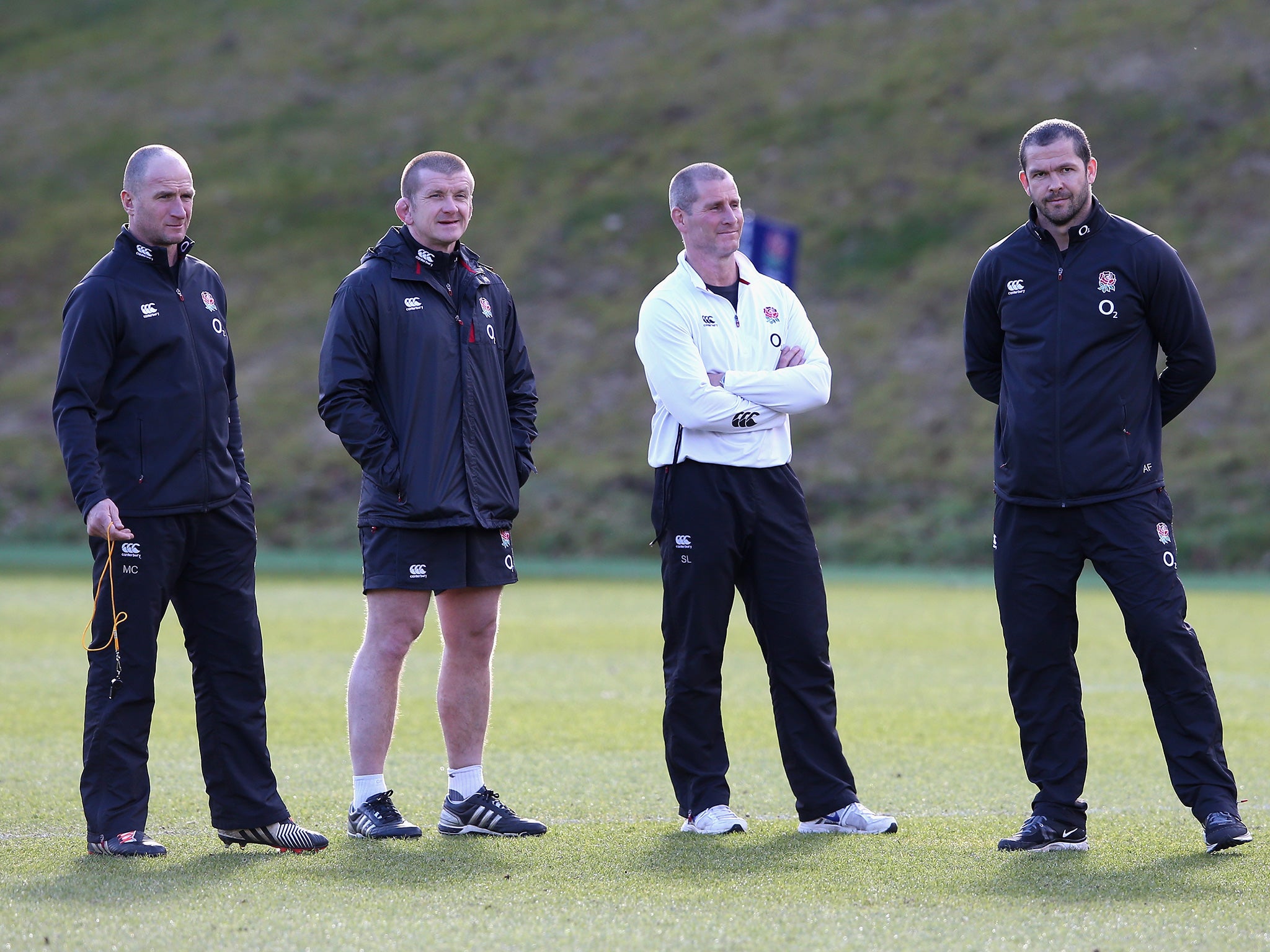England backroom shake-up: Eddie Jones wasn’t going into battle with someone else’s soldiers
This way Jones surrounds himself with like-minded baggage-less support staff and buys himself time

Andy Farrell, Graham Rowntree and Mike Catt are all history as far as red-rose business at full international level is concerned, following the new head coach Eddie Jones’ decision to tear things up and start over. And there is plenty of history sloshing around: this is not the first time in the professional era that Twickenham has staged a day of the long knives.
It is almost a decade since the Rugby Football Union ordered Andy Robinson, who had succeeded the World Cup-winning Clive Woodward as England’s lord and master only to find himself operating under very different conditions, to divest himself of his support staff. The defence strategist Phil Larder, the backs coach Joe Lydon and the kicking specialist Dave Alred were the men on the wrong end of the P45 treatment on that occasion.
While the intervening years have been a little less brutal on the sacking front – when Brian Ashton was driven out of office after a 30-point victory over Ireland in 2008, his back-room staff remained largely intact; when the 2011 World Cup campaign went sour, both the main man Martin Johnson and his attack coach Brian Smith walked away of their own accord – Twickenham remains a tough place to work. Today's statement confirming the latest departures underlined the essentially thorny nature of a career devoted to the red-rose cause.
Rumours that Stuart Lancaster’s stewardship of the national side would end in Ashton-like fashion – that the body of the coaching team would somehow survive the removal of the head – always seemed a little far-fetched: Farrell, seen for better or worse as the dominant character in the group, did not escape criticism from those players who participated in the review set up following England’s failure to land a punch at their own World Cup during the autumn; Rowntree, the longest-serving member of the panel, had presided over a pack going backwards, both literally and metaphorically; Catt had attracted bad publicity when news leaked of an ill-timed training-ground ruck with the celebrity midfielder Danny Cipriani, who had just been informed of his failure to make the cut for the global tournament.
The appointment of Jones pretty much did for the three amigos. Having worked so closely with the former England captain Steve Borthwick – a man who suffered his share of rough treatment from the Johnson regime – in treating Japan to the World Cup trip of a lifetime, the Australian was always likely to summon his principal lieutenant to Twickenham and install him at the top end of the operation. With Paul Gustard, constructor-in-chief of the all-but insurmountable Saracens defensive barricade, also on the recruitment list, Farrell and Rowntree had no unique selling points to offer.
And, anyway, Jones has made his decision as much on the basis of policy as on personality. Had he taken England to Murrayfield with the existing coaches and lost to the Scots, he would have been heavily criticised for fighting his first battle with someone else’s soldiers. This way, he surrounds himself with like-minded, baggage-less support staff and buys himself some time.
Farrell has been linked with a return to Saracens – almost a straight swap, with Gustard moving the other way – and it makes a degree of sense, in so far as he is still relatively inexperienced as a coach and needs day-to-day contact with gifted players. But if he is ever to fulfil himself at international level, he will have to shoulder the responsibilities of a “number one” sooner rather than later. Until he takes sole charge of selection and stands or falls by his results, he will be incomplete.
The same can be said of Rowntree who, many good judges believe, has the energy and ability to perform well at rugby director level. If he decides to play safe and return to his “scrum doctor” comfort zone, he will never be out of work. If he takes a bolder, more expansive approach, he could make a real name for himself.
None of the departed will be feeling great about life right now: rather like political careers, all England-associated coaching jobs end in failures of one kind or another. Can Jones buck the trend? It will be fun watching him try.
Join our commenting forum
Join thought-provoking conversations, follow other Independent readers and see their replies
Comments
Bookmark popover
Removed from bookmarks